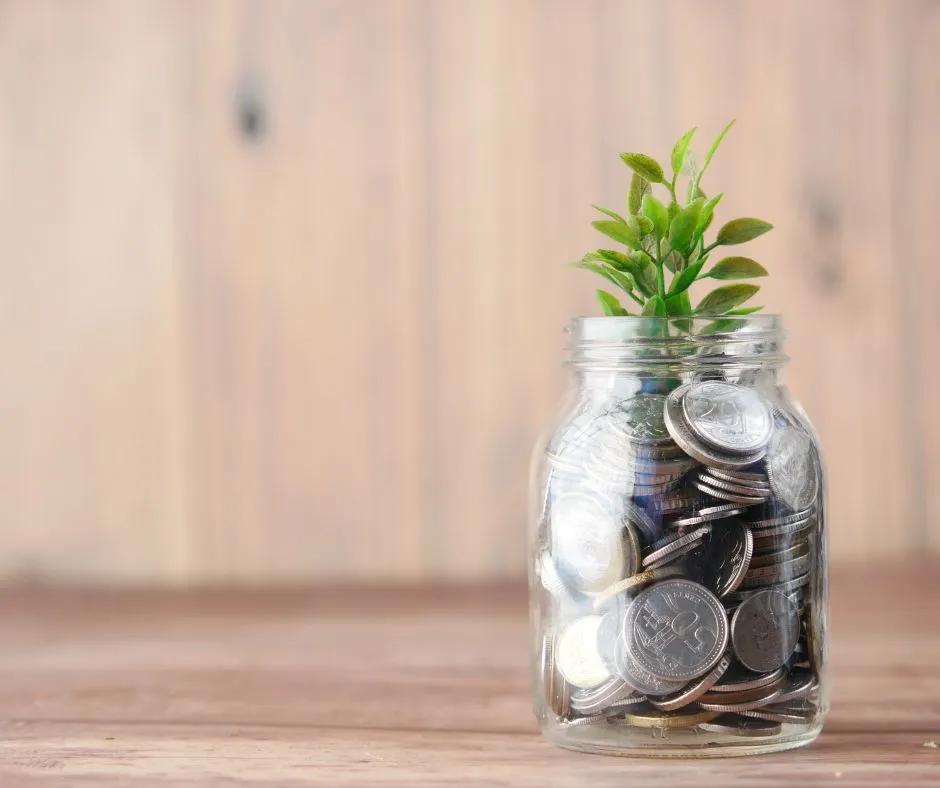Savings Tips and How to Set Up an Emergency Fund

One of the most important ways you can help yourself financially is to pay yourself first. Paying yourself first involves saving for a rainy day, emergency issues, and the future. Most financial advisors state that you should save at least six months of living expenses in your emergency fund. Plus, you should save the maximum contributions in your individual retirement account, either via your employer or via your own investment funds. But, how do you do it all? Let’s look at how you can save money and set up an emergency fund in the most painless way.
- Set a Goal – How much do you want to save, and which accounts will you do it in? How will you do it? Will you get an automatic payroll withholding so that you never see it, or will you do it manually yourself? Remember to be realistic when you set your savings goals. If all you can save is five dollars a week because that’s all you have, that’s okay. That’s something.
- Save Your Change – One way to trick yourself into saving money is not to spend your change. Just spend cash, and when you do, save the change every day in a jar. You will be shocked at how much you have at the end of the year. Some banks also have a "keep the change" savings plan that will automatically divert your change to whole dollars into savings.
- Cut Expenses – If you have unneeded expenses, even if they are wanted, get rid of them for now. Once you have your six months of emergency savings, you can re- evaluate whether you need that thing you were spending too much money on or not. For example, cut your Netflicks account or your mobile phone bill, or stop buying coffee or other snacks every day at work.
- Track Your Bank Account – It can help to go back and look over your expenditures for the past year. You can go online to your bank account and look at each months withdraws. Which expenses were frivolous? Which are needed? Was it worth it?
- Save Your Pay Rises – If you get a pay rise, don’t spend it. You’re used to the current budget. Just save the difference. Adding the pay rise to your savings is the ultimate way to pay yourself. Maybe it’ll go in your emergency fund for now, but once that’s built, it can go in another fund like the vacation fund or the boat fund.
- Get a Side Gig – If your income is just too low, and if it’s that much under the median household income in your area, you may need to earn more money. Thankfully, there are ways to do that without killing yourself. You can freelance, clean houses, pet sit, do childcare, or even become a mystery shopper. It’s up to you, but all that money can go right into your savings.
Look at ways to boost your Superannuation
- Contribute more: One way to boost your superannuation savings is to increase your contributions. This can be done by making extra contributions from your pre-tax income, such as through salary sacrificing or making personal deductible contributions.
- Consolidate your super: If you have multiple superannuation accounts, consolidating them into a single account can help you save on fees and potentially earn higher returns. This is because having multiple accounts means you’re paying multiple sets of fees and potentially missing out on the benefits of having a larger balance.
- Review your investment options: It's important to review and adjust your investment options regularly to make sure you're getting the best possible returns. Consider speaking to a financial advisor to get advice on what investment strategy is best suited to your needs and risk tolerance.
- Take advantage of government incentives: There are various government incentives available that can help boost your superannuation savings, such as the co-contribution scheme and the low-income super tax offset. Make sure you’re aware of these incentives and take advantage of them where possible.
- Save Windfalls – Did you win a bingo game? Did someone send you a birthday gift? Get a refund from something you did not expect? Don’t spend it. Save it. All windfalls should immediately go right into your savings. If that is too painful, at least put half in and spend the other half.
- Save Budget Extras – Once you’ve set up your budget, stick to it and save anything extra. For example, if you set up your utility budget to be $100 a month but this month you only spent $50, put the remaining $50 in savings. One reason is that one month your bill might be $150 instead of $100 and due to saving the budget extras you’ll have that money to fall back on.
Saving money and getting an emergency fund set up is the best way that you can avoid the dreaded unexpected expenses that often harm budgets, cause people to borrow money, and put you further behind.
If you're interested in learning more about how I can help you reach your retirement and wealth goals and help you take a first step to the creating wealth, I'm offering a FREE 30-minute Goal Breakthrough coaching call where we'll create your custom game plan to set you up for success in 2023.
Please click https://calendly.com/abundeco/goalbreakthrough to schedule your call now.


